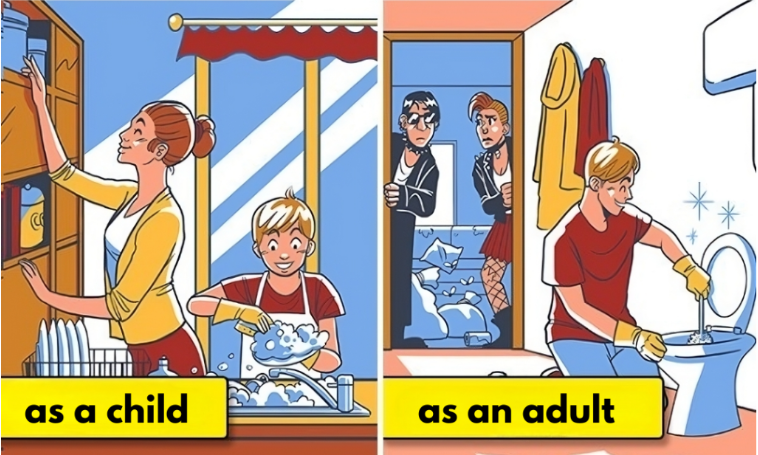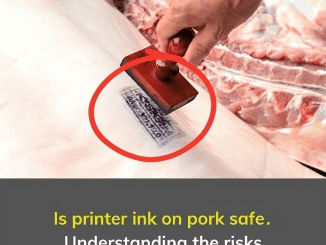Parenting is an ever-evolving journey, and millennial dads are leading the charge in rethinking traditional methods. Gone are the days when “eat your vegetables, or no dessert” was the golden rule. Today’s fathers are turning away from rewards and punishments, opting instead for a more empathetic, child-centered approach. But what’s behind this shift, and how does it benefit children in the long run? Let’s dive into the reasons millennial dads are challenging age-old norms and explore their modern parenting alternative.

Why Rewards and Punishments Are Losing Appeal
At first glance, rewards and punishments might seem like effective ways to manage children’s behavior. After all, they offer immediate results—compliance, obedience, and a sense of control. However, this approach focuses solely on the short term, often ignoring the deeper emotional and psychological impact on children.
Rewards and punishments, though seemingly opposite, are two sides of the same coin. Both rely on external motivators rather than fostering intrinsic growth. They teach children to act out of fear of consequences or desire for rewards, rather than understanding the value of their actions.
Millennial dads are increasingly aware of these drawbacks. They recognize that such strategies can erode self-esteem, create anxiety, and weaken the parent-child bond over time. Instead of focusing on control, these dads are prioritizing connection, understanding, and guidance.
The Hidden Costs of Punishments
Punishments may seem like a straightforward way to correct behavior, but they often come with unintended side effects. Dr. Angela Nakab, a pediatric and adolescent specialist, highlights several long-term consequences of punitive parenting:
- Behavioral Rebellion: Punishments often fail to address the root cause of bad behavior, leading to repeated missteps or even outright defiance.
- Anxiety and Uncertainty: Children may struggle to understand why their actions are “wrong,” fostering insecurity and confusion.
- Low Self-Esteem: Consistently punishing a child can lead to feelings of inadequacy, as their sense of self becomes tied to their mistakes.
- Erosion of Trust: Frequent punishments can damage the parent-child relationship, replacing trust and connection with fear and resentment.
Millennial dads are steering clear of these pitfalls by seeking methods that build confidence and understanding instead of submission.
Why Rewards Aren’t the Answer Either
While rewards may seem like the “positive” counterpart to punishment, they come with their own set of problems. The reliance on external incentives can teach children to expect something in return for every good deed, undermining their ability to develop intrinsic motivation.
For example, rewarding a child with candy for completing homework might work in the short term. But over time, they may only see homework as a means to an end, not as an opportunity to learn or grow. This mindset can carry into adulthood, where intrinsic satisfaction takes a backseat to external validation.
Millennial dads understand that raising well-rounded children requires more than a star chart or gold sticker. They aim to instill a sense of purpose and responsibility that doesn’t rely on superficial rewards.
The Rise of Positive Parenting

So, what’s the alternative to rewards and punishments? For many millennial dads, it’s positive parenting. This approach emphasizes understanding, empathy, and collaboration over control. Positive parenting focuses on building a child’s emotional intelligence, self-discipline, and sense of connection.
At its core, positive parenting rejects the idea of controlling behavior through external pressures. Instead, it encourages parents to:
- Show Unconditional Love: Celebrate the child’s efforts and achievements without attaching strings. Phrases like “I’m so proud of the effort you put into that” nurture confidence and motivation.
- Encourage Self-Reflection: Guide children to understand the impact of their actions, helping them make better decisions independently.
- Focus on Communication: Use open dialogue to address challenges and set boundaries, fostering trust and mutual respect.
The Benefits of Ditching Rewards and Punishments
Switching to a positive parenting approach has profound benefits for both children and parents. Here’s why more millennial dads are making the shift:
- Enhanced Self-Esteem: Children develop confidence by understanding that their worth isn’t tied to rewards or mistakes.
- Improved Emotional Intelligence: By focusing on feelings and empathy, children learn to navigate relationships and challenges with greater ease.
- Stronger Parent-Child Bonds: A cooperative approach fosters trust and mutual respect, creating a safe and supportive environment.
- Intrinsic Motivation: Children begin to value their actions for their own sake, rather than for external validation.
- Better Long-Term Outcomes: Positive parenting nurtures resilience, adaptability, and self-discipline—essential traits for adulthood.
Real-Life Examples of Positive Discipline

Positive parenting doesn’t mean letting children do whatever they want. It’s about setting boundaries in a way that encourages understanding and growth. Here are some practical strategies millennial dads are using:
- Natural Consequences: Instead of punishing a child for forgetting their homework, let them experience the natural consequence of explaining it to their teacher. This teaches accountability without resentment.
- Empathetic Listening: When a child acts out, take the time to understand their feelings. Are they tired, frustrated, or seeking attention? Addressing the root cause often resolves the behavior.
- Collaborative Problem-Solving: Involve children in finding solutions. For example, if screen time becomes a problem, work together to create a schedule that feels fair.
- Positive Reinforcement: Celebrate effort and progress with words of encouragement rather than material rewards.
Shifting from Control to Connection
The move away from rewards and punishments reflects a broader cultural shift toward mindful and empathetic parenting. Millennial dads aren’t just focused on controlling behavior—they’re focused on fostering meaningful relationships and raising emotionally intelligent children.
This approach requires patience and effort, but the rewards are immeasurable. By focusing on connection over control, these dads are setting the stage for a future generation of compassionate, self-aware individuals.
Conclusion: A New Era of Parenting
Millennial dads are rewriting the parenting rulebook, proving that rewards and punishments are not the only tools for raising happy, well-adjusted children. By embracing positive parenting, they’re fostering deeper connections, building confidence, and encouraging intrinsic motivation.
The journey isn’t always easy, but the results speak for themselves. With empathy, understanding, and a commitment to growth, millennial dads are raising kids who aren’t just well-behaved—they’re thriving. And isn’t that the ultimate goal of parenting?


